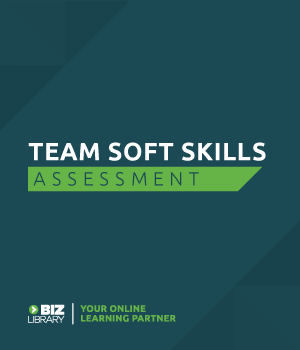Self-Assess Your Soft Skills
Soft Skills Assessment
As a manager, having a strong understanding of various soft skills is necessary to lead your team. A soft skills assessment can help illuminate areas where improving your skills can greatly improve the performance of your team, along with your own personal success. It’ll also show you which soft skills you’re strong in, so you can better understand how to teach those positive behaviors to others.
While reading through the statements in this assessment, make sure to look at it objectively – thinking about how you truly think and act, rather than how you would like to. Be sure to answer every question if you want accurate results! After completing the assessment and seeing your own results, you can download the workbook to assess your team’s soft skills as well!
